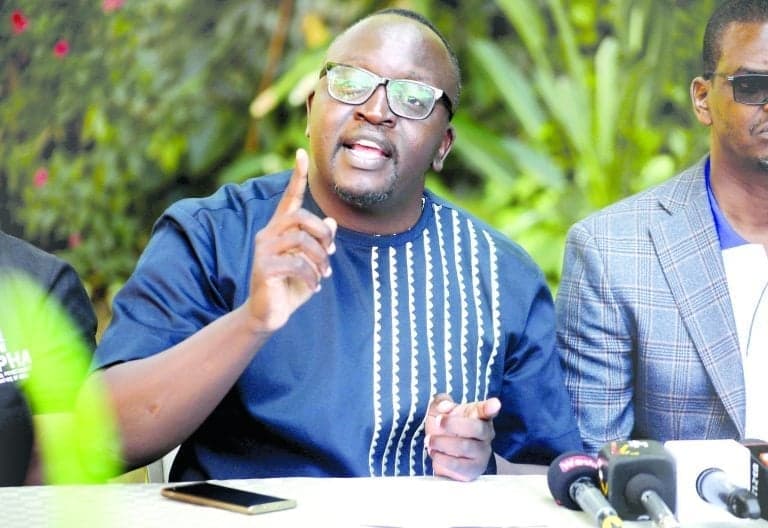We're loading the full news article for you. This includes the article content, images, author information, and related articles.
RUPHA halts SHA services amid delayed payments of over KSh 43 billion and system failures. Patients must pay cash from September 22.

Nairobi, Kenya — 2025-09-22 17:45 EAT.
Private and faith-based hospitals across Kenya will immediately suspend services for beneficiaries of the Social Health Authority (SHA), demanding cash payments due to delayed reimbursements, mounting unpaid claims, and failures in the digital claims infrastructure. This decision—announced by the Rural and Urban Private Hospitals Association of Kenya (RUPHA)—comes after a two-week ultimatum to the government lapsed without resolution.
As of Monday, September 22, 2025, private hospitals under RUPHA will no longer offer “credit” services to SHA patients. All medical services for those under SHA will require cash until outstanding issues are addressed.
RUPHA states that approximately KSh 43 billion in claims are outstanding, with another KSh 24 billion under review. Monthly reimbursements by SHA—between KSh 5.4 billion to KSh 6 billion—fall short of monthly claims which reach KSh 8.8 billion.
RUPHA says that 50% of claims from Level 2–4 facilities remain unpaid; inpatient and surgical claims are being settled at rates of only 10–20% in many cases.
SHA was established to replace the National Hospital Insurance Fund (NHIF), with a mandate to extend universal health coverage and streamline hospital payments.
Many lower-level health facilities are heavily reliant on reimbursements from SHA to maintain operations, purchase supplies and drugs, and pay staff. Delays or non-payments significantly impact their viability.
RUPHA had issued a notice on September 5, 2025, giving the government 14 days to resolve the outstanding claims. That notice elapsed on September 19 with no satisfactory resolution, triggering the suspension.
Under provider contracts with SHA, there are stipulated timelines and procedures for communication of rejected claims and for claim settlement. RUPHA alleges these are not being followed.
The Social Health Authority is legally required to maintain functional platforms for claim verification, fraud detection, provider registration (including suspensions/downgrades), and beneficiary management. Hospital providers say several of these components remain non-functional or are being implemented inequitably.
RUPHA (Brian Lishenga, Chair): “Hospitals are in crisis … leaving Kenyans unable to access healthcare,” he said, adding that the association warned of collapse if payments are not made.
Hospitals & Providers: Many hospitals say they have been forced to subsidize SHA patients for months due to delayed payments and claim rejections, creating unsustainable losses.
Patients/Public Advocates: Concerns are rising that low-income patients will delay or forgo needed care due to inability to pay upfront, risking worse health outcomes. (Reflected in media analysis)
Government/Ministry of Health: Has acknowledged receipt of the complaints and said it is engaging with RUPHA to find a solution, but as of the latest reports no public timeline for payment or system improvements has been announced.
|
Indicator / Metric |
Detail |
Source / Date |
|---|---|---|
|
Unpaid claims by SHA to RUPHA hospitals |
KSh 43 billion outstanding, plus KSh 24 billion under review |
Techweez & Kenyan Wall Street, Sept 22, 2025 |
|
Monthly reimbursement vs claim submission |
SHA pays KSh 5.4-6 billion; claims amount to KSh 8.8 billion |
Techweez & Kenyan Wall Street, Sept 22, 2025 |
|
Claim settlement ratios (surgical/inpatient) |
10-20% payout in many cases |
Eastleigh Voice & others, Sept 2025 |
|
Level of provider involvement |
RUPHA represents about 700 private and faith-based hospitals |
Techweez & Kenyan Wall Street, Sept 22, 2025 |
Access to healthcare: Thousands of SHA-beneficiaries may avoid or delay seeking care due to upfront payment requirement, increasing morbidity/mortality, especially in rural/poor communities.
Hospital viability: Continued non-payment may force private hospitals to reduce staff, cut services, or shut down operations in some regions.
Public confidence: The universal health coverage agenda could lose legitimacy if promised benefits are not delivered and providers disengage.
Fiscal pressure: Government will face pressure to budget for arrears, possibly reallocating funds or borrowing; delayed payments strain public finances.
Exactly when SHA will clear the backlog or make partial payments sufficient to restore services.
Whether all private and faith-based hospitals will comply, or some may continue offering SHA services under protest.
The scale of “service downgrades, suspensions, or removal of hospital capacities” already happening due to supplier and facility non-payments.
How the digital claims system failures are being addressed: timeline, technology vendors, oversight.
2025-09-05: RUPHA issues notice demanding payment of outstanding claims and resolution within 14 days.
2025-09-19: Notice period expires without satisfactory action from SHA or Ministry of Health.
2025-09-22: RUPHA formally suspends credit services under SHA; announces cash payments required.
Government response: when payments will be made and what amount; whether a schedule for arrears settlement is published.
Reforms to SHA’s digital platforms: announcements or tenders regarding fraud detection, claims-management, provider verification.
Impact on patients and hospitals: reports of service denials; monitoring from media, NGOs, or health rights groups.
Possible legal or political pressure: parliamentary inquiries, judicial reviews, or public protests.
[Explainer: Why SHA Was Created – Promises vs Challenges]
[Analysis: Digital Failures in Kenya’s Health Insurance Schemes]
Editor’s Note: This article will be updated as more details emerge, including statements from the Ministry of Health and SHA.
Corrections: None identified at this time.
Keep the conversation in one place—threads here stay linked to the story and in the forums.
Other hot threads
E-sports and Gaming Community in Kenya
Active 8 months ago
The Role of Technology in Modern Agriculture (AgriTech)
Active 8 months ago
Popular Recreational Activities Across Counties
Active 8 months ago
Investing in Youth Sports Development Programs
Active 8 months ago